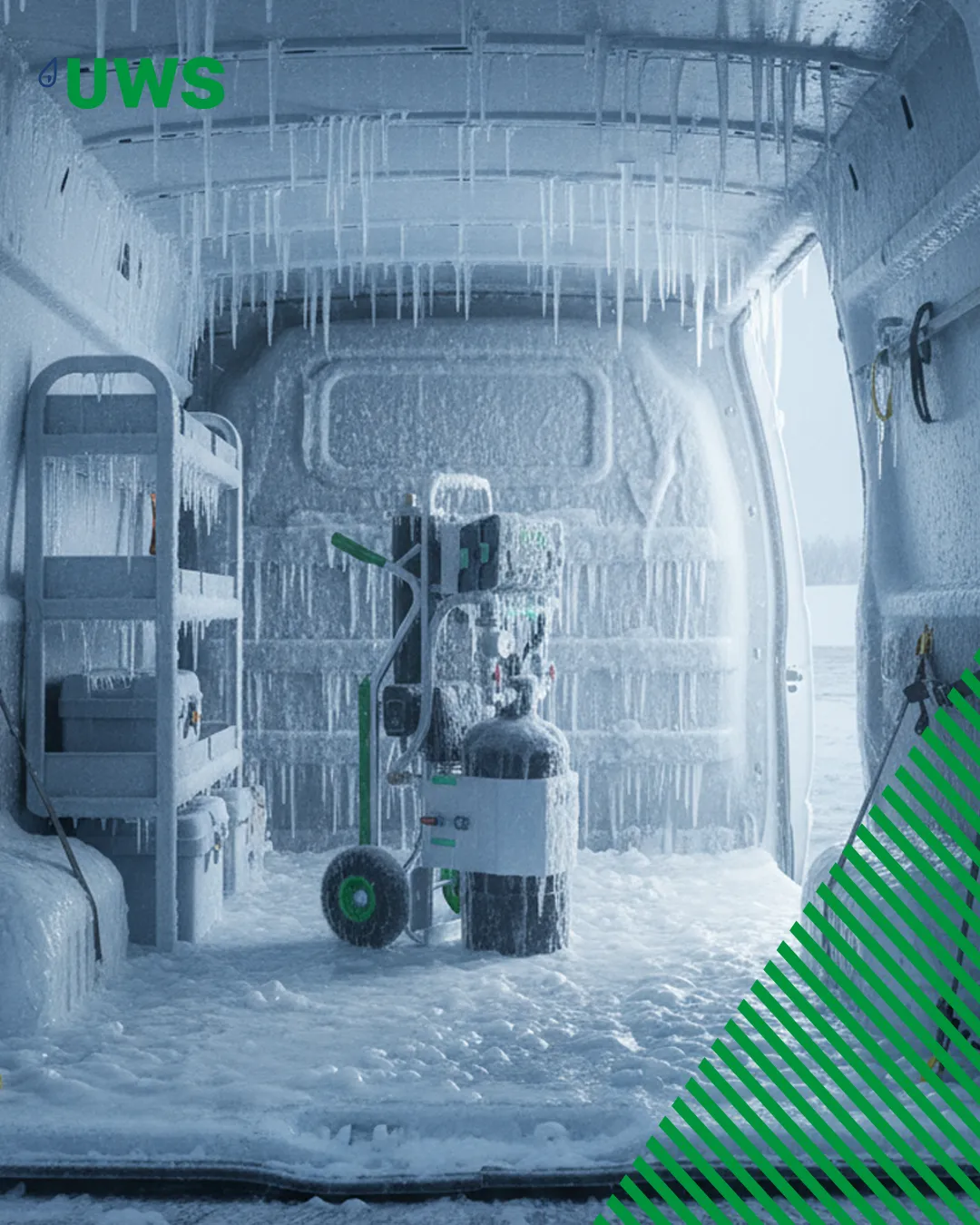Frost protection for professionals – How to get your UWS devices and resins through the winter
The days are getting shorter, the nights colder – and while the first heaters are running at full speed again, the next challenge is already lurking outside: frost.
What is no problem for heating systems can quickly have unpleasant consequences for your treatment devices and mixed-bed resins.
To help you and your team get through the cold season safely, we have put together a few important points for you here.
Autumn is heating season
Autumn is here – and with it comes the start of the heating season.
Now HVAC professionals across the country are back in action every day: reactivating old systems, commissioning new heat pumps, checking heating circuits, flushing systems, refilling and optimizing.
Between customer appointments, maintenance, and emergency services, there is often little time left – yet now is the perfect moment to think about heating water analysis and treatment.
Cleanly treated heating water not only ensures efficiency and longevity, but also reliably protects the system throughout the winter.
And those who check early on usually save themselves hectic repair work in January.
1. Keep storage rooms frost-free
It sounds trivial, but it is often overlooked: even a few degrees below freezing are enough to cause water residues in hoses, cartridges, or devices to freeze.
This not only leads to leaks or burst housings – filter inserts, seals, and pipes can also be damaged.
Our tip:
Make sure that all storage rooms where you keep Heaty devices, filters, or resins are stored are permanently frost-free.
A simple temperature sensor with an alarm function can save you a lot of trouble here.
2. Be careful when storing in your vehicle
In everyday HVAC work, everything often stays in the van after work. This is understandable, but riskyin winter.
Overnight, temperatures in the cargo area quickly drop well below 0 °C, even if the vehicle is parked in a garage.
This can have consequences:
- Residual water can freeze in the treatment devices.
- The mixed-bed resin can freeze in cartridges or storage bags and cause them to burst due to the expansion of the ice.
Therefore:
🚫 Do not leave any equipment or resins in the vehicle overnight!
✅ It is better to load them in the morning and bring them back into the warmth in the evening.
3. Store mixed-bed resin correctly
Our Vadion pH-Control is a highly efficient mixed bed resin for desalination and pH stabilization.
Cold temperatures alone do not cause permanent damage to the resin, but it becomes dangerous when it freezes.
This is because the water contained in the resin expands, which can lead to cracks or burst containers.
In addition, as long as the resin is frozen, it cannot flow properly and therefore cannot perform any treatment.
Therefore:
Always store resin and cartridges frost-free at temperatures above 0 °C.
Conclusion:
A few degrees below zero can be enough to damage valuable equipment or resin cartridges.
That’s why it’s worth doing a quick check, especially now in the fall:
Are all storage areas frost-free? Are there any processing devices/resin left in the car at the end of the day?
Because one thing is certain: prevention is cheaper than replacement.



